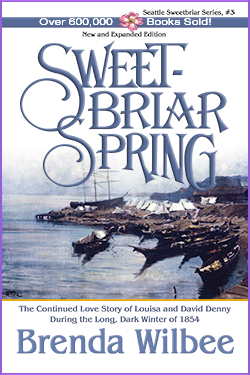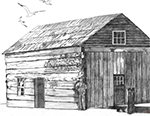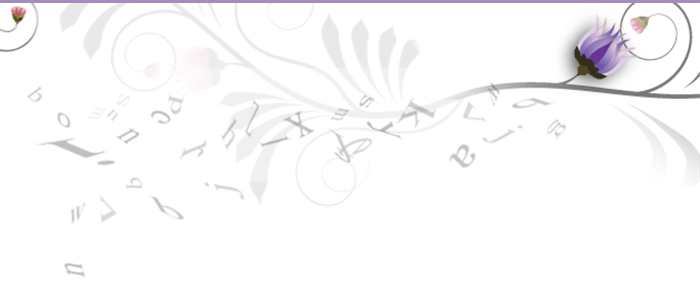
The Tinsy Winsy Rag,
your monthly connect to this writer's life - and
always something
free & fun.
Thank you!
You have successfully joined our subscriber list. Tinsy Winsy and I hope you will not be disappointed!
Your first newsletter will arrive next month. In the meantime, please enjoy the many things I offer subscribers for free - including a pdf of my latest book, Taming the Dragons. Click here. Thank you.
Blog Subjects
- Alaskan Life
- Christian Nationalism
- On Writing
- Self-Publishing
- Book Design
- Christmas
- Narcissa
- Memoir
- Sweetbriar Illustrated
- Taming the Dragons
- Skagway AK Etc
- Guidepost Devotionals
- Living With Ravens
- Inspirational
- Christianity
- Reflection
- History - Women
- History - Seattle
- History - Gold Rush
- History - Family
- Family
- Racism
- Sexual Assault
- Sexual Molestation
Recent Blogs
- Sackcloth and Ashes
- Why Deny Abuse in the Christian Community? PART I
- Giving FROM my Heart, Not Giving AWAY my Heart
- When the Bible is Weaponized
- The Call of the North: "B...bbbbbear."
Recommended Sites
• Fauzia Burke, Publicist• Jane Friedman, Marketing
• Laura Christianson, Platform
• Susy Flory, Memoir

Sweetbriar Spring #3 (ebook)
"Oh, what a book the story of my life would make!" —Louisa Boren Denny
In 1851 two women kissed each other goodbye in a sweetbriar garden. They wept for they knew they’d never see each other again. Louisa was moving to Oregon.
At 24 years old Louisa Boren bids farewell to her childhood home and friends, and begins her journey toward destiny. Sweetbriar Spring, the captivating sequel to Sweetbriar and Sweetbriar Bride, continues this remarkable love story of Louisa and David Denny duing the long, dark winter of 1854. Today her sweetbriar mingles with the wild roses that bloom each spring in the Northwest—a tribute to the victory of faith, hope, and love amidst worry and anxiety over agitated Indians, war aflame in Europe, and devastating news at home.. [NOTE: Not yet available. Please contact me—link below—to sign up for a notification notice.]
sketches by Brenda
ISBN: 978-0-943777-21-4
PRICE: 11.95 / ebook
The growth of Seattle in '53, '54, and '55 was steady and strong, and the atmosphere of those years happy. New people arrived. The mill hummed. Gardens of the pioneers' own planting were beginning to produce. White fences enclosed flower gardens and kept the children in and the cows out. The Indians were friendly, some working in the mill, others peddling clams, and berries. To be sure, there were rumors of discontent among some of the tribes, but there were not alarming, for Governor Stevens, superintentdent of Indian Affairs, would settle all of them.
—Roberta Frye Watt in Four Wagons West
NOT EVEN THE TEN DEGREES registered on Arthur Denny's thermometer could stop the pioneers' excitement. They simply bundled up and forged their way through the icy, thin air for Henry Yesler's cookhouse, tromping the frozen paths carved though dense forest and swatting at themselves whenever a wayward fern or stalk of devil's club spanked snow onto their coats and boots. Washington Territory's brand new and very first governor had come to Seattle!

Why, he looks just like a butter churn dasher! thought pretty Louisa Boren Denny, uncomfortably pressed by the crowd against the square-cut log wall of the cookhouse. Short, scrawny, his large head topped by a thatch of straw-colored hair, Governor Stevens wasn't much to look at. Why, big Mr. Butler beside her could turn the man upside down in a jiff and give him a good dashing! Louisa smiled at the thought of Governor Stevens oozing butter out his ears and pockets.
He had a nice face though. Darting, small blue eyes. Blonde mustache, neatly trimmed. Unshaven beard. Thin lips. He wore the customary red flannel shirt. She was most surprised though when he spoke. A veiled animosity in the tone of his voice made her uneasy. It raised questions in her mind, not answers, and this distrubed her. She slid her hand into her husband's to gain the gentle, reassuring pressure of David's fingers.
"In obedience to your call," the governor began, "I take pleasure in communicating information in relation to the condition and resources of this Territory, and in making suggestions in relation to its amelioration and development."
David leaned toward Louisa, not taking his eyes off the governor. "Stuffy..." he whispered. She snickered. A glance up to David's profile netted a grin from him that made her giggle again.
"Shh!" barked big Mr. Butler.
The Seattle pioneers had earlier learned from the territory's only newspaper that the governor's three primary and immediate tasks were to 1) secure the northern route for the transcontinental railroad still under survey by Congress and Jeff Davis, Secretary of War; 2) settle the Indian affairs and take a census; and 3) put into motion the beginnings of government for the newly formed territory. David and Louisa, with their three-week-old baby strapped to David's back in an Indian pack, wrapped in blankets and topped by a thick bear pelt, had walked nearly two miles from their homestead to hear what Isaac Ingalls Stevens would have to say about all three issues.
The room was packed, the air stuffy. Both stove and fireplace crackled and popped. Lanterns flickered, spitting. Lumbermen stood hunched, collars undone, their scruffy weary faces catching reflection in the dark, steamy windows. No Indians peered through tonight. The weather was simply too cold to stand outdoors for more than a minute or two. Close as the room was, though, Louisa was only beginning to warm up, for she'd arrived with teeth chattering and unable to feel her feet. Which reminded her. She'd have to thank Betsy, Chief Seattle's granddaughter, for the bear skin. Emily hadn't suffered at all. "Do you see Mary Ann? Or Anna?" she asked David, hoping to say hi her sister and sister-in-law.
"Shh!" barked Mr. Butler again.
David craned his neck, and shook his head.
"Do you see Arthur?"
"Shh!!!"
"He's over by the fireplace. You know he wouldn't miss this," said David.
"Regular couple of magpies, aren't you?" quipped Mr. Butler with a bit of a snark.
"Don't get your knickers in a knot, Mr. Butler," said Mrs. Butler, all of twenty-one years old. Her thirty-three-year-old husband clamped his mouth shut and crossed his arms over his massive chest.
Louisa leaned forward to see around him, and to smile at Mrs. Butler. "I'm not doing very well on my tatting, Catherine."
"Next time you're in town, come see me then. I'll set you straight." Tatting was something Louisa's grandmother had done before her eyes had gone bad and Louisa, as badly as she wanted to learn, found it quite complicated.
She leaned back against the wall, a bit fretful. Surely her sister would have come to hear the governor. Were the children sick, then? If so, her brother-in-law Arthur would not be the one to stay behind and tuck them in. David may have been the Denny brother to find Elliott Bay of Puget Sound—and recognize its potential for a "city"—but it was big brother Arthur, older by ten years, who was "building" it. Wouldn't surprise anyone in these parts if Arthur ran for public office, taking after their Pa. Already he was angling for postmaster. He certainly had the desk for it. Water under the bridge, thought Louisa, picturing his big roll-top deck taking up so much room on the journey West, to the exclusion of any other furniture. Water under the bridge.
"The duty which has been assigned to me of exploring this Territory," the governor droned on with an annoying "all-around-the-mulberry-bush" delivery. Louisa translated in her head. I am to explore the Territory...
"...the question of the practicability of a railroad route has placed me in possession of its general character and condition. With the aid of the—"
She gave up. And she wasn't the only one annoyed, apparently. A man by the name of Larson shouted, "Enough of that poppycock, Governor!"
"Put your irons in the fire!" Wyckoff. The blacksmith.
"Speak English! This ain't Olympia, the capital!" hollered Luther Collins. As usual, he'd not brought his family. Louisa often wondered if Diana, Lucinda, and the boy, might go mad isolated on their Duwamish farm and seeing few but him. "This here's Seattle!" said Collins. "Get to the point. What are you going to do about the railroad?"
"What about the the mail service?" interrupted Geroge McConaha, the town's only attorney.
Dr. Henry Smith rebutted with humor, "What mail service?" and snickers broke out.
"Begoryl" the governor shouted, "if it's English you speak, well then, I'll speak English! Plain and simple!" He jumped onto the table and cheers went up. He stomped his foot to make sure the table was sound. Everyone laughed and Louisa grinned. This might be fun. The men, and the few women in attendance, seemed to think so too.
She caught sight of Kate Blaine, the minister's wife, and waved. Ursula McConaha, a few feet away, shifted Eugenia to another hip. When she caught sight of Louisa, she rolled her eyes in mock despair.
"I just got in from the back country," the governor hollered over the last of the whistles and foot stomping. "Ran across a couple of fellows at Mox La Push, Mr. Yesler! Looks like they got a six-foot dam fed by the Cedar River and two circular saws! Could put you and your sawmill right out to sea!"
Loud chortles ripened. Henry Yesler, owner of Seattle's steam-run sawmill, responded with a grin somewhere under his whiskers. "They got one problem, Gov'ner," he drawled, dragging on his words. "Two saws ain't much when you're belly deep in mud and puddle! Fanjoy and Eaton ain't got no boats to navigate the Duwamish. How're they gonna haul that lumber of theirs out of mud and puddle diapers once it's cut? The way I see't, those blokes are stuck up the ole crick without the ole paddle!"
Explosive laughter erupted.
Hillory Butler bellowed, "Huzzah for Seattle!" and Louisa ducked, close call, a hair short of being clipped. She laughed along with everyone else. The idea that anyone could turn out more lumber than Seattle was just too funny to sit for.
Louisa saw Ursula poke her husband in the ribs. "Let's get back to the railroad!" said George McConaha, Seattle's only attorney. "We need to divert the flow of immigrants to Puget Sound, away from Oregon. What about the Pass?"
"What pass?"
"Naches Pass, you idiot!" Luther Collins answered for George, manoeuvering a plug of tobacco in his cheek. "You just got in from the back country, didn't you? We're talking about the Citizens' Road! The one us and Olympia put through last fall! Scouted it for the railroad, we did—only that idiot McClellan you sent up there last fall declared it impassable!"
"That so-called road you built is nothing but a bunch of stumps with a 800-foot drop this side of the Naches summit! As much as we need the railroad, we don't need it hurtling over that cliffI"
"BOO!" Dr. Henry Smith hissed, and the boo's rose up like flies.
"How do you expect a train to go down such a grade?" swatted the governor.
"The Biles party did it! Didn't you run into some of them in the back country, settling up by White River? If 148 people and 29 wagons can come through Naches Pass, don't you think a train can? They could tell you straight enough!"
"A train!" declared the governor hotly, "hasn't got time to lower each car by hand over the precipice the way the Biles party did! Now that's the story they tell!"
David pulled Louisa in front of him and leaned around her, embracing her with both his arms. "That better?" he whispered. "Your back must be aching by now."
She nodded and smiled, and leaned with relief against his chest and stomach. He propped his chin on top of her head and together they stood in the stuffy room, listening to the arguments and debates fly. The air fairly sizzled. The passes. The railroad. A recent discovery of coal on the Duwamish River, where it takes in the White. The upcoming elections to be held in 20 days. The petition to Congress for a steam-boat to run mail up and down the coast. Louisa's head swam with the possibilities and developments until she felt faint from the heat and trying to keep up. She began to wonder, too, if Emily Inez was getting hot. Maybe they should wake her and get her out of her coverings. "Turn to the side, David," she whispered. Juggling the heavy bear skin in her arms, she stood up on tippy toe to feel Emily's soft cheek, then run a finger down her neck and around her ear. She was fine.
"I'd like to change the order of business," said George McConaha, suddenly serious. He stood with his feet widespread, arms crossed. Lantern light reflected off his clean-shaven face; handsome, with a deep cleft in his chin, a finely chiseled nose, sharp, blue-green eyes that hinted keen intelligence and common sense. "We got a missing man—a white man." Feet shuffled. "There's been a few rumors of Indian unrest and we'd be advised, I think, to investigate."
"Utter nonsense! Nothing more than idle talk," poo-pooed the governer, so dismissively that it startled Lousia. "The Indians are placid enough and just as soon as I can get a count of the tribes, we can start the treaty process—"
"But we have a man missing," pursued McConaha, his voice hard and direct despite the casual stance he maintained. A formidable attorney if you put him in a court of law, thought Louisa, thinking too they were lucky to have such a man in Seattle—though the fun was quickly leaking out of the evening. "Rumor or not, and whether we like it or not," insisted Ursula's husband, "the Indians maintain justice by retaliation. Maybe they picked him off in some kind of revenge. And we do have guilt on our hands." His were the only eyes that did not shift to Luther Collins. The redheaded King County Commissioner stood rigid, though his face burned hot with anger at the direct jab in reference to his lynching of Masachie Jim, an Indian, last July.
"In this country you're bound to have a few missing men," said Stevens from his perch on the table, a bit impatiently. "It can't be helped. A wrong step over the trail, a tipped canoe. You know yourself, McConaha, know how dangerous these canoes are that we paddle around in. We can't add two and two and insist on five."
Louisa could feel David tense. She did too. A missing man meant they all felt compelled to look over their shoulders and keep both ears fixed on the forest. That the governor could so easily dismiss their concerns, pulled in her gut.
"You're getting worked up over nothing," he said.
"I don't think he is," offered Arthur.
"Well, if the two you are talking about Montgomery McCormick—no one's ever seen the man in these parts, yet every week the Pioneer & Democrat advertises for his whereabouts. A ploy to sell papers. I suggest the man died of cholera the other side of Fort Hall and even now his body is decomposing in some hidden swale of the Oregon Trail."
"That's not true!" objected Sheriff Russell. "Two sailors tell me they saw a man fitting McCormick's description disembark the Franklin Adams last summer, right here in Seattle."
A buzz swarmed around the room, bees this time, not flies. Very few dismissed what Chiefs Curley and Seattle had to say.
"David, let's go," said Louisa, wanting to hear no more. "Please, David. Let's go."
Reluctantly he nodded, and they worked their way to the door.
"Hello, Mrs. Yesler," she whispered. "Excuse us?"
"Let me see that baby before you scoot past. What a little duckling, just as big as a minute she is!"
Louisa's mind easily diverted whenever her precious and adorable Emily Inez attracted attention, but not tonight. She only wanted to be out of the hot, stuffy room, away from the governor. Why did the man bother her so?
"Excuse us," she whispered, sliding past Ursula and her family. His voice? His lack of concern? So pompous, so cocky he was. Suddenly she realized she didn't believe him. He was the sort of man who's so focused on a goal he can't slow down long enough to see—and to deal with—the obstacles.
"Louisa, wait," whispered Ursula, grabbing her elbow and drawing her in. "I just have to tell you something!"
Louisa could just imagine: Ursula McConaha always had something to tell. "We have to go," she whispered.
"No, wait." Ursula shifted her baby, eighteen-month-old Eugenia, in her arms, apparently oblivoius to George Jr. and little Ursula swatting at each other behind her back. She leaned in to whisper in Louisa's ear. Something about eating mussels. It made no sense.
"Come on," urged David.
The door flew open in their faces. Doc Maynard, winded and huffing, stood on the stoop and Louisa couldn't help but smile. No matter what, rascally Doc Maynard could be trusted to lighten the worst of worries. "He'll jolly his way straight to hell," Arthur Denny had more than once muttered under his breath—though his real dislike of Maynard came from the fact that the good doctor quite liked his whiskey.
"Well, I'll be jiggered," he complained happily and loudly, "you all started the meeting without me!" Only his merry sky-blue eyes were visible behind his glasses: His blue-knit scarf was wound around and around his head like a snake; his raccoon-tailed cap he'd tugged low over his brow. He tugged now on the scarf, just enough to reveal his mouth, and barged on in, dragging behind him a stranger and making a lot of noise while he shuffled and stomped off the snow and and began peeling off his scarf. Heads turned.
"Why, hello there, Governor!" he hollered. "Oops, can't see a blamed thing when these spectacles fog up." He jabbed the steel-rimmed glasses up onto his forehead and winked at Louisa, catching his hat as it fell. "Hey! Come on in!" he bellowed, pulling on the elbow of a bulky man still in the cold. At the same time he pulled a flask from an inside pocket and took a quick swallow. "Ahh...that's better," he said with a burp, winking again at Louisa so that she blushed. "Warm a fellow up, sure enough. Now in you come," he told his companion. "Or you'll be letting all this hot air out! Hahaha!"
The stranger was bigger than even Mr. Butler—a Goliath of a man, and Louisa couldn't help but gawk. She lingered on his features, puzzled and curious. His face, speckled with liver spots, defied his more youthful look, cheeks round, rosy with cold. He lumbered in self consciously, rubbing his mouth and scratching about his ear with a wrist. Like an old confused hound dog, Louisa thought, feeling pity.
"Did I miss the show?" Maynard asked David.
"No, we're leaving early. Liza's not feeling real strong yet."
"Better get that baby covered then. A bit nippy out there."
Towering over Emily, the stranger suddenly gave her smile. What odd eyes, thought Louisa, taken back. Glassy, liquid and clear and blue. He had eyes like those of a young child—or very old man. He sensed her consternation and looked away. Quickly, though, he retuned to smile again at Emily. "I like babies," he said.
Louisa unfolded the bear pelt in her arms and set it over Emily's face. Am I to be frightened of the man, or sad? she wondered. She opted for sad; he seemed a most pitiable creature. "I do, too," she said, and gave him a smile.
"Whew!" David whistled when they were at last outside. "What do you think? Montgomery McCormick?" Fog swirled from his mouth as they waited in the bitter cold, giving their lungs a chance to adjust, both them making sure Emily was cozy and warm.
"I don't know. But it's like he's knocked his head and lost a bit of stuffing."
"Hey, Eddie! Come back in, buddy!"
They both pivoted to look back at the silhouetted cookhouse. The strange man had come out and was watching them, his gigantic body all but filling the door frame.
"I gues he's not McCormick." Laughing, David bent his knees to heft the Indian pack more comfortably onto his shoulders.
"No. And now we have two mysteries. Where is McCormick? And who is this man?"
"Want to stop in at your sister's on our way home?"
"Of course."
They both laughed and stumbled in the moonlight toward the snowy path leading north.
| SWEETBRIAR BOOKS |
Sweetbriar #1 (ebook) | Sweetbriar Bride #2 (ebook) | Sweetbriar Spring #3 (ebook) |
| Sweetbriar Summer #4 (ebook) | Sweetbriar Autumn #5 (ebook) | Sweetbriar Hope #6 (ebook) | |
| FICTION | Thetis Island (ebook) | Shipwreck! (ebook) | |
| NONFICTION | Taming The Dragons (BOOK) | Skagway: It's All About The Gold (BOOK) | |
If you'd like to know when the new edition of Sweetbriar Spring is reissued, please sign up for my email list.
I do not give out addresses.
Brenda@BrendaWilbee.com


